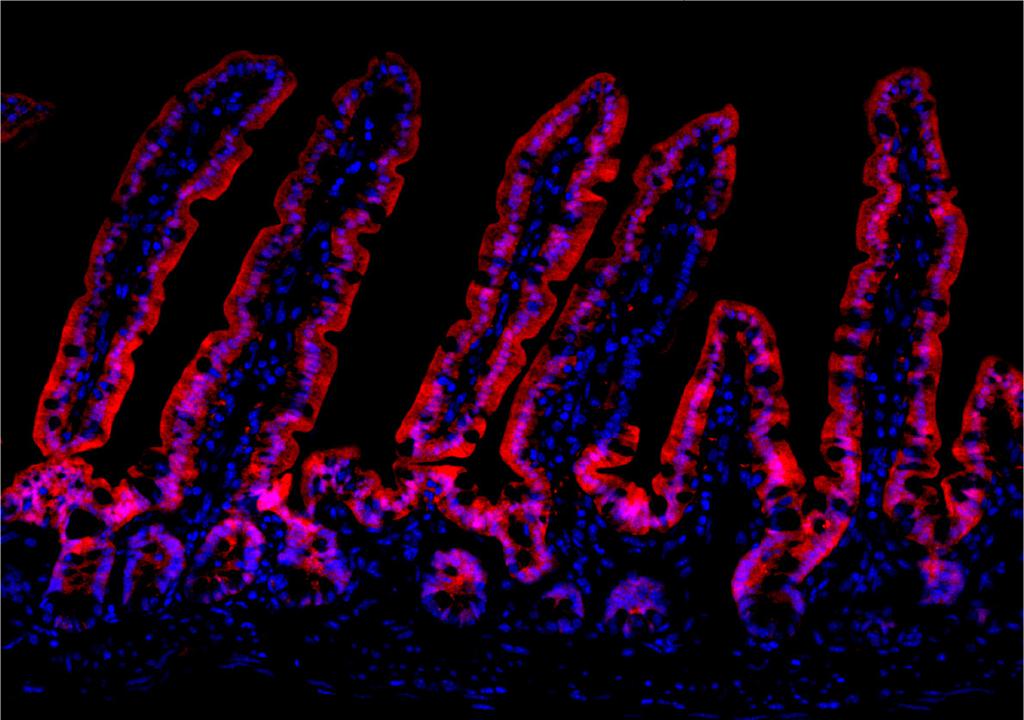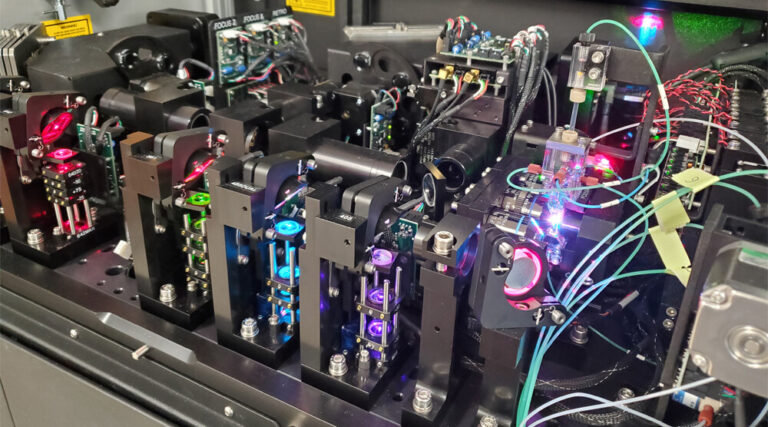News

22 November 2024
Stowers scientists reveal how a key protein drives gut lining regeneration
Discovery offers potential therapeutic target for certain cancers
Read Article
The Cytometry team assists Stowers Institute scientists by providing technical services and collaborative support for the comprehensive measurement of cells and their properties.
Jump to:
Publications


The Cytometry facility is a state-of-the-art laboratory that provides Stowers Institute researchers with a resource for analytical and preparative studies of cells using flow cytometry. The Cytometry team provides a full range of services including routine sample processing, cell staining, data analysis and strategic planning for novel assays and custom cell sorting applications. Collaborative projects encompass a broad scope of research topics and often result from a group effort among several of the Institute’s scientific support teams.
Cytometry Analyzers
High Speed Cell Sorters
Imaging Equipment
Macroparticle Sorter
Team Contact
Head, Cytometry
Stowers Institute for Medical Research
After graduating from the University of Missouri, Kansas City, with a B.S. in biology, Jeffrey S. Haug held several research and clinical positions, in which he relied on cytometric tools to gain new insights into cancer biology. In 1994, he joined the Washington University School of Medicine in the Division of Bone Marrow Transplantation, St. Louis, where he actively participated in both clinical and basic stem cell research. He designed custom flow cytometry applications for the bone marrow transplant division that were the most sensitive, accurate, and rapid cytometric assays for blood stem cells available at the time. In 2000, Haug was recruited to the Stowers Institute to establish a Cytometry facility, which he manages based on the collaborative style of core resource management developed at Washington University.

After graduating from the University of Missouri, Kansas City, with a B.S. in biology, Jeffrey S. Haug held several research and clinical positions, in which he relied on cytometric tools to gain new insights into cancer biology. In 1994, he joined the Washington University School of Medicine in the Division of Bone Marrow Transplantation, St. Louis, where he actively participated in both clinical and basic stem cell research. He designed custom flow cytometry applications for the bone marrow transplant division that were the most sensitive, accurate, and rapid cytometric assays for blood stem cells available at the time. In 2000, Haug was recruited to the Stowers Institute to establish a Cytometry facility, which he manages based on the collaborative style of core resource management developed at Washington University.
The Cytometry Facility at the Stowers Institute for Medical Research offers a wide variety of cell sorting and cytometry analysis services, data analysis pipelines.



News

22 November 2024
Discovery offers potential therapeutic target for certain cancers
Read Article
News

24 February 2023
Zulin Yu is a scientist in the Stowers Institute’s Microscopy Technology Center.
Read Article
News

30 January 2023
Kevin Ferro is a scientist in the Stowers Institute’s Cytometry Technology Center.
Read Article
Identification of Stem Cells from Large Cell Populations with Topological Scoring
Sardiu ME, Box AC, Haug JS, Washburn MP. Mol Omics. 2021;17:59-65.
Evaluating the Effects of Cell Sorting on Gene Expression
Box A, DeLay M, Tighe S, Chittur SV, Bergeron A, Cochran M, Lopez P, Meyer EM, Saluk A, Thornton S, Brundage K. J Biomol Tech : JBT. 2020;31:100-111.
Peuß R, Box AC, Chen S, Wang Y, Tsuchiya D, Persons JL, Kenzior A, Maldonado E, Krishnan J, Scharsack JP, Slaughter BD, Rohner N. Nat Ecol Evol. 2020;4:1416-1430.
Story B, Ma X, Ishihara K, Li H, Hall K, Peak A, Anoja P, Park J, Haug J, Blanchette M, Xie T. Life Sci Alliance. 2019;2:e201800211. doi: 10.26508/lsa.201800211.
Lush ME, Diaz DC, Koenecke N, Baek S, Boldt H, St Peter MK, Gaitan-Escudero T, Romero-Carvajal A, Busch-Nentwich EM, Perera AG, Hall KE, Peak A, Haug JS, Piotrowski T. Elife. 2019;8:e44431. doi: 44410.47554/eLife.44431.
Suppression of m(6)A reader Ythdf2 promotes hematopoietic stem cell expansion
Li Z, Qian P, Shao W, Shi H, He XC, Gogol M, Yu Z, Wang Y, Qi M, Zhu Y, Perry JM, Zhang K, Tao F, Zhou K, Hu D, Han Y, Zhao C, Alexander R, Xu H, Chen S, Peak A, Hall K, Peterson M, Perera A, Haug JS, Parmely T, Li H, Shen B, Zeitlinger J, He C, Li L. Cell Res. 2018. Author Correction: Cell Res 2018:1-14. doi.org/10.1038/s41422-018-0072-0. Published online July 2018.;28:904-917.
